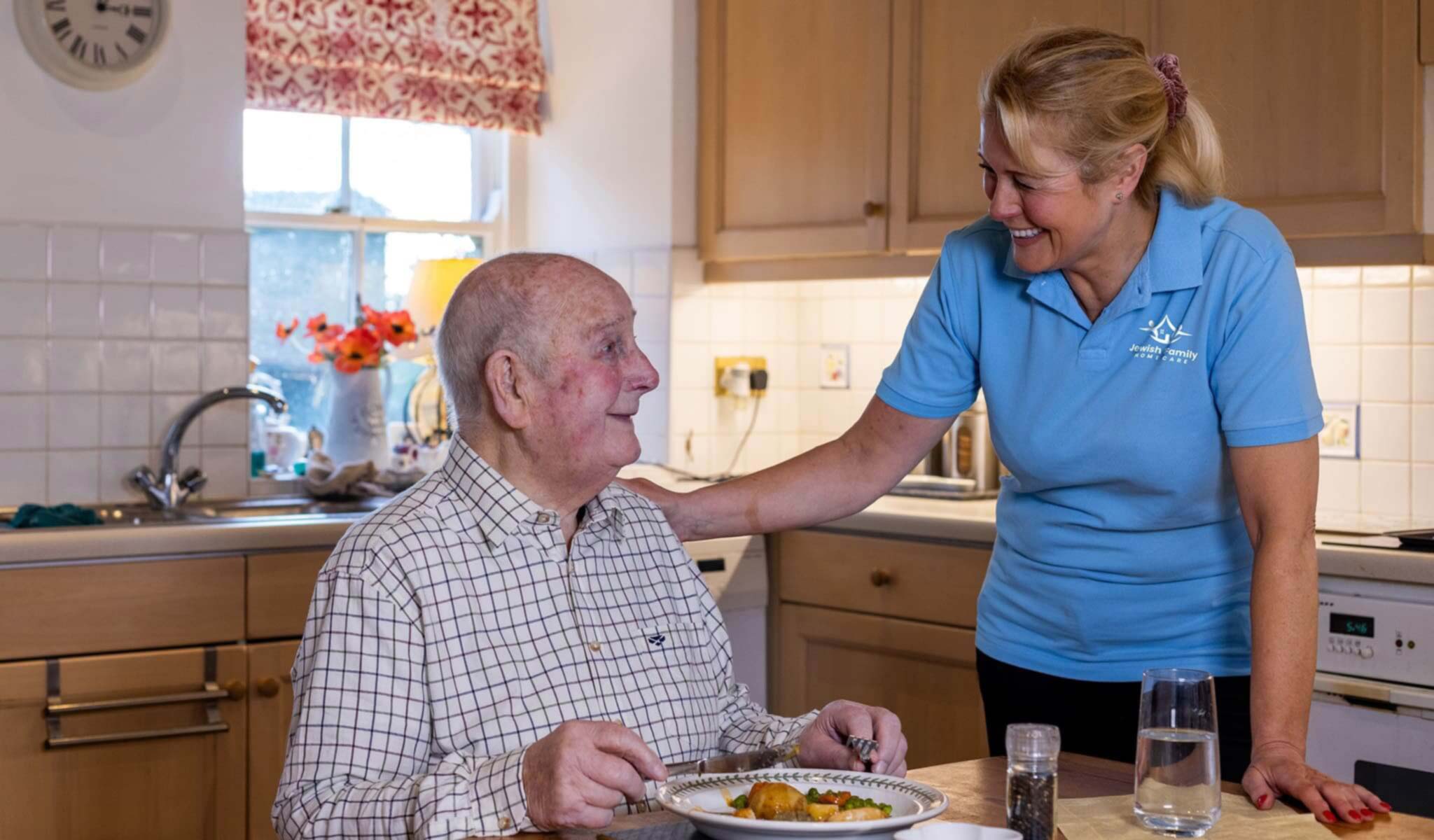When Someone Is Diagnosed With a Chronic Illness, So Many Facets of Life Are Impacted.
Lifestyle changes might include a new diet or exercise program to follow, new medications that may require some trial and error to get just right, medical appointments, tests and procedures, and more. It can quickly become overwhelming.
Having Jewish Family Home Care by your side makes it easier to manage a chronic health condition effectively. Our chronic illness care services are provided right in the comfort of home and are highly customized to each person’s individual needs.
What Chronic Illnesses Can Be Helped With In-Home Care?
Since 2015, we have been helping individuals with chronic health needs to live life to the fullest. Home care services from Jewish Family Home Care can benefit anyone with the following types of health conditions:
- COPD
- Parkinson’s disease
- Arthritis
- Heart disease
- Stroke recovery
- Alzheimer’s or other types of dementia
- ALS
- Multiple sclerosis
- Hypertension
- Diabetes
- Depression
- And more
How Can Home Care Help?
Our RN-supervised care experts have comprehensive training and experience in supporting individuals with a wide range of health needs.
We begin with an in-home meeting with one of our registered nurses to get to know the person in need of care.
The nurse will work with you to develop a customized plan of care to make life safer and more comfortable and to help maximize independence. The RN will also be on hand to monitor and adjust the care plan as needs change and will provide supervisory wellness checks to ensure optimal health.
Some of the many ways we accomplish this include:
- Medication reminders, so meds are taken exactly as prescribed
- Accompaniment to medical appointments
- Planning and preparing nutritious meals
- Laundry and light housekeeping
- Offering motivation and encouragement to stay physically active
- Providing friendly companionship to brighten each day
- And much more
Get Started Today With Specialized Chronic Illness Care at Home!
Our award-winning care team is available to answer all your questions and schedule your in-home consultation whenever you’re ready
You can reach us at 954-908-5677 to learn more about how chronic illness care services can make life the best it can be for someone you love. We’re pleased to support residents of Pembroke Pines, Hallandale Beach, Tamarac, Hollywood, David, and all of Broward County.
